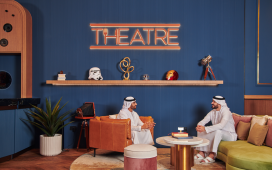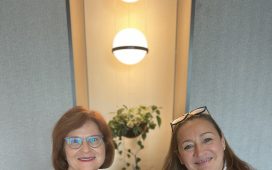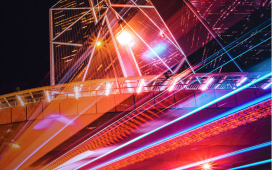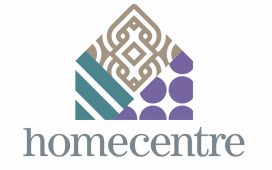 Digital transformation has been with us for quite some time, and hoteliers are truly embracing it. Due to its structure, hospitality had always been slow to adapt or lead the way in technological advancements. However, this is slowly changing.
Digital transformation has been with us for quite some time, and hoteliers are truly embracing it. Due to its structure, hospitality had always been slow to adapt or lead the way in technological advancements. However, this is slowly changing.
Simply put, we adapted digital technology to change the existing processes of doing business, replacing manuals with digital procedures. Interestingly, this journey is also affecting our business culture, our people and our guests.
One of the most critical decisions we implemented under our digital transformation strategy was to go gung-ho, to become a reliable mobile-first hotel brand. Today, the average human attention span is believed to be
8 seconds; that’s a second shorter than a goldfish. We have no time or patience and are constantly being exposed to a copious amount of data. If you think about the mediums and how we consume information, the answer is: mobile.
Mobile-first
Guests can book hotel rooms quickly and easily via the mobile app or our mobile-friendly corporate website. Much more can be done with mobile devices, from checking in to ordering room service, selecting your room upon arrival and unlocking your hotel room’s door keylessly, and checking out without actual interaction with the front desk.
Competition with online travel agencies (OTAs) to increase direct bookings is also every hotel’s concern. There’s so much to learn from sophisticated sites, like booking.com, as they have perfected this process. If your guest can finish a booking on an OTA site in less than a minute, and if it takes more than 10 minutes on your hotel website and still requires a phone call to the reservations department, you are definitely doing something wrong.
Unified communication and IoT
Internet of things (IoT) will need more time, investment, innovation and, most importantly, stakeholders’ confidence to advance the hoteliers in this area. IoT is the network of interrelated computing devices and digital tools connected through the internet to enhance user experience. A quick example would be
the good old PMS (property management system) device, the heart of a day-to-day hotel operation. Today this has changed slightly. PMS is still a vital operational tool; however, the bigger picture is all about a fully fledged customer relationship management (CRM) solution. Many other third-party tools like central reservation system (CRS), PMS, the hotel’s loyalty programme, spa and restaurant reservation systems, social media tools, etc., could also be connected to the main machine. This would bring a unified approach to a hotel ecosystem.
Guest journey
Technologies such as facial recognition, artificial intelligence, chatbots, and data analytics are relatively modern innovations within hospitality. Still, we are only able to see the tip of the iceberg. Machine learning will be applied to bring a variety of external factors into pricing our rooms, and personalisation in the booking process is going to be taken to the next level by doing things like pointing AI at people’s social media profiles.
Guests are already controlling things like lighting and temperature and connecting to their Netflix and Spotify accounts inside their rooms. Screens of all sizes appear everywhere, and more and more hotels are offering tools like Alexa, so guests can talk to their rooms instead of touching them.
Touchless payment systems were adopted by many trendsetters a few years back, yet it took a worldwide pandemic to make them mainstream. We are getting rid of paper menus and replacing them with barcodes to scan and go through digital menus with a single click.
Overall, there is a proper revolution happening in the hospitality sector. It is a digital revolution that requires today’s and tomorrow’s leaders in hospitality to adapt to it.
At Rixos Hotels UAE, we are truly embracing the digital transition, and we are trying first to observe and understand then predict how things might shape up. On top of all the above points, we’ve adapted many other initiatives in the last six months. Some important ones worth mentioning are: the chatbot technology we implemented on our social channels and expanded to WhatsApp business to have a watertight communication strategy. In terms of hotel revenue, we’ve managed to shift a considerable chunk from the legacy tour operators to digital channels through the help of Google ads, social sponsored campaigns, etc. We can even see changes within our internal communication and work-life balance. Zoom meetings and other video conferencing solutions have changed how and where we work. In fact, office hours are no longer needed for some businesses.
I think it would be fair to say that some things will never be the same again for hospitality and travel. The technological shift has gained momentum during a pandemic. Intelligent voice-activated controls, smart mirrors, keyless entry, contactless check-in and payments, no plastic policy, meat alternatives in F&B and remote work procedures are just some things that will keep us busy in the post-Covid era.









